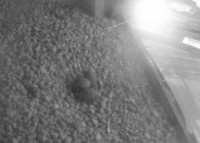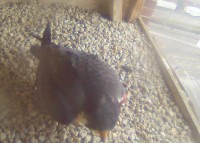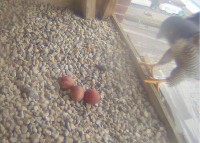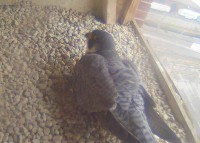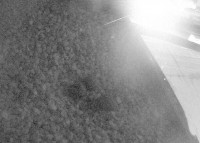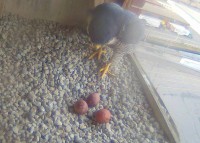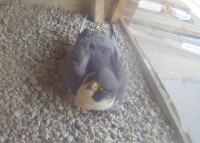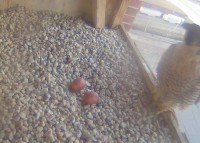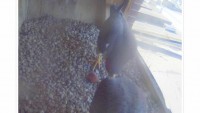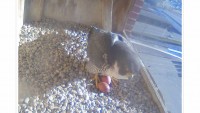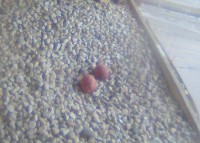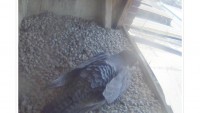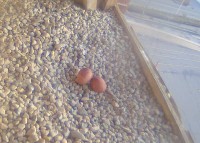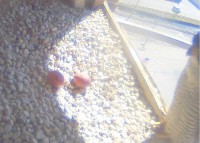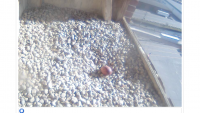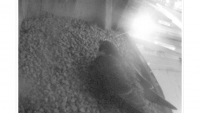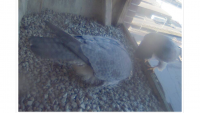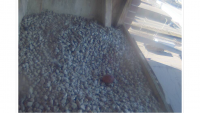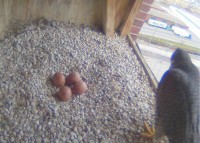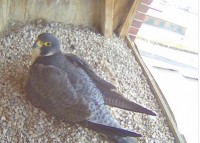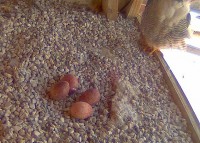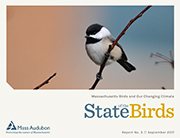Lawrence Peregrines: Fourth egg!!
April 12, 2018 in In the Nest Box, lawrence peregrines, Peregrine Falcons Eastern Massachusetts, Peregrine Falcons Massachusetts
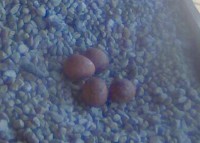 Great news….the fourth egg was laid overnight and now the full-time incubation process begins and lasts about 30 days! This is likely the final egg, but were not able to know for sure just yet.
Great news….the fourth egg was laid overnight and now the full-time incubation process begins and lasts about 30 days! This is likely the final egg, but were not able to know for sure just yet.
Checked in a look around 6AM this morning and the female was hunkered down, in incubation mode, under partly cloudy skies, winds from the south at 6MPH, and temp at 35F.
The forecast today calls for a chance of showers, mainly after 5pm. Increasing clouds, with a high near 58. Calm wind becoming southwest 5 to 8 mph in the afternoon. Chance of precipitation is 30%. New precipitation amounts of less than a tenth of an inch possible. Finally, warmer temps on the way!
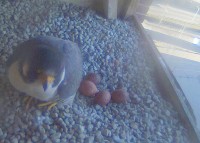 The male came in and allowed the female to take a break, and then he proceeded to incubate the eggs, now starting to share in the task of sharing the duties. Once incubation begins, the incubation process usually takes between 29 – 33 days until the chicks hatch! During this time the weather is expected to become warmer! Despite the dramatic events of the last two weeks, the circle of life continues on!
The male came in and allowed the female to take a break, and then he proceeded to incubate the eggs, now starting to share in the task of sharing the duties. Once incubation begins, the incubation process usually takes between 29 – 33 days until the chicks hatch! During this time the weather is expected to become warmer! Despite the dramatic events of the last two weeks, the circle of life continues on!
